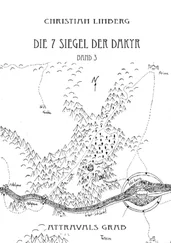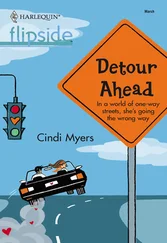And sometimes you hear a soft knock at the front door. You wearily stand up to answer it, not immediately, because you hope they’ll go away and leave you alone. But they don’t, so eventually you have to get up, shuffle over to the door, ask who it is.
And you hear a murmur from the other side. Something with an M. A voice you can’t quite place that seems to touch some distant part of you. And you ask again. Who is it?
And now the M comes with other letters attached to it. It’s no longer an orphan. You suddenly understand that the person on the other side of the door isn’t telling you their name. They’re stating yours. Only it’s a name only one person in the world can use.
Your heart stops beating as if there’s some kind of electrical short in your wiring. You turn the lock with trembling fingers. You fling open the door and the person whispers it again.
Mama . . . Mama . . . Mama.
And she falls into your arms.
THEY FOUND HER A HIDING PLACE.
Colombia was a big country.
Riojas was bigger.
Aunt Salma wasn’t an aunt by blood, but by affection, a spinster who’d been semi-adopted by the family long ago and was from then on always present at holidays, confirmations, and funerals. Back in Fortul, where Galina was born.
They drove Claudia there the next day.
Claudia assured them Riojas didn’t know her last name. All FARC converts changed their surnames to save their families from retribution.
Galina knew that would protect her only so much.
Claudia was striking and pregnant. Riojas would be beating the provinces to find her.
It was a measure of Galina’s manic joy that she hadn’t noticed. Not immediately. Certainly not at the door, where she’d gazed teary-eyed at her; not even at the kitchen table, where they’d clung to each other like shipwreck survivors.
But when they finally separated and she checked her daughter for damage, she saw the kind she hadn’t expected.
“You’re pregnant.”
Two years ago Claudia might’ve had an answer for that—a comment on her mother’s diminishing powers of observation. She simply nodded.
“Whose is it?”
Claudia told her. She was never going to speak about it again—just this one time. She held both of Galina’s hands. She spoke slowly, softly, calmly. It was good she kept Galina’s hands prisoner. Galina felt like using those hands. To hit something. To cover her ears. To wrap around her mouth to prevent herself from screaming. It was impossible for a mother to sit there and listen to this. It was beyond endurance.
The subject of abortion never came up.
It’s possible the pregnancy was too far advanced by then. Maybe it didn’t matter. It wasn’t how either of them had been raised.
Aunt Salma lived near a dairy farm outside the city, where it was possible Claudia might live in relative privacy and anonymity. At least for a while. At least until the baby was born.
They told Salma just enough to understand the gravity of Claudia’s situation. They constructed a story for anyone who couldn’t be avoided. An unfortunate love affair. An unplanned pregnancy. A girl who wanted to be left alone with the result of her bad choices.
Galina and her husband visited every two weeks, making sure to leave late at night, to stop several times along the way to check for any suspicious cars that might be following them. Any more than two weeks might be risky. Any less would be unbearable.
With the help of a local mestiza midwife, Claudia gave birth to a baby girl.
Galina had wondered how she’d feel. If she’d ever be able to embrace the baby as her actual grandchild. When the infant emerged headfirst, Galina saw Claudia in every facet of her features. She felt transported through time. To a hospital bed in Bogotá, the smell of blood and alcohol and talcum, a screaming baby who even then seemed to grab for something just out of reach.
She was named for Claudia’s paternal grandmother. Sofía, the ventello singer. She was swaddled, baptized, showered with affection from the small circle of people allowed to know of her existence.
For a time, brief and fleeting, Galina allowed herself to relax and luxuriate in the peculiar pleasures of being an abuela. When she visited Fortul, baby toys in hand, she was like anyone else visiting their grandchild. She pretended that Claudia lived in Fortul because her husband worked for one of the refineries there. That Claudia never made the return trip because the baby wasn’t ready to travel. That they always stayed inside because the weather was nasty or because Sofía was sensitive to the sun.
Then it became impossible to pretend.
Salma returned from the market one day looking nearly anemic. She told Claudia that people were asking questions. Someone was showing a picture around. Claudia remembered her first days of captivity when Riojas had interrogated her, when he’d posed her naked in various positions intended for maximum humiliation. Even with her eyes swollen shut, she could see bursting flashbulbs shooting out of the black like Roman candles.
They had to move them.
Another family resource was contacted and imposed upon. And it was an imposition. Whoever hid them was keenly aware they were putting themselves in the line of fire. A kind of ad hoc system developed. Claudia and Sofía were shuttled. Back and forth and back between whichever relatives and friends were momentarily able to swallow their fear and provide them with a temporary home.
It wasn’t easy for Claudia to be passed around like an unwanted relative. But that’s what she was. A burden, an albatross. Albatrosses meant death; so might Claudia. She’d spend a few weeks to several months at each house or apartment before leaving. Usually in the middle of the night. She became adept at packing quickly, bringing just enough from one place to another to make each new stop seem remotely like home.
Slowly, pressure eased. Stories of paramilitares inquiring after a beautiful girl with a small baby became more sporadic, then stopped altogether. Claudia’s stays lengthened, routine replaced fear. Sofía grew from infant to toddler—in an instant, it seemed to Galina, who only saw her in carefully parceled-out increments. Claudia seemed to grow as well, regaining pieces of herself that had been taken away from her in that hacienda. She began venturing outside, baby in tow, disguised in sunglasses and an enormous straw hat.
Galina accompanied her on some of these walks. She let herself imagine that life might reach some kind of normalcy. It had been four years. If one read the papers correctly, Riojas had more than enough to keep him occupied. They were threatening to extradite him to the United States for narcotics trafficking. Maybe he’d forgotten about Claudia. About them. Maybe he no longer cared.
When the three of them strolled hand in hand—lifting a begging Sofía over the curb by both arms—it was easy to imagine this was true.
Later Galina would understand that’s what he’d wanted them to think. So they’d begin to believe it was over. Become a little more carefree, even care less . So they’d stop peeking around corners.
She never knew how it happened.
Not exactly how it happened. She would never know that. She would have to imagine it, which was worse than knowing. Because the imagination can conjure up every nightmare never dreamed.
Someone spotted Claudia. That much she knew.
Galina received a panicked call from her daughter. Or rather, her answering machine did. For the rest of her life she would admonish herself for going shopping that day. For opening the refrigerator and somehow seeing the necessity for food. She would have hours and days and weeks and years to imagine what was being done to her daughter while she performed the mundane tasks of daily living. To ponder a single question. If she’d been home to take Claudia’s call, would she have been able to save her?
Читать дальше












